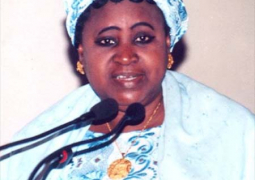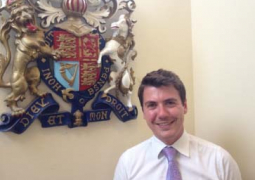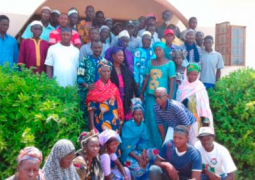From the look of things, the just concluded 37th Ordinary Summit of the Authority of Heads of State and Governments of the Economic Community of West African States (ECOWAS) appears relatively different from the previous ones.
It was observed that the discussion on the resolution of renewed conflicts and the search for peace for development in the West African sub-region was seriously dealt with by the sub- regional leaders. They knew fully well that development cannot take place without peace.
Aside from deliberation on the issues of political stability and resolution of renewed conflicts which took centrestage, the summit underlined the need to reduce poverty, and for the leaders to commit themselves to environmental preservation, climate change and increase food production.
We must commend Dr. Goodluck Jonathan, the acting President of
We also congratulate Mr. James Victor Gbeho, the Ghanaian Presidential Advisor on Foreign Policy, who was elected at the summit to continue the term, until next December 2010, of Dr. Mohmamed Ibn Chambas out-going President of the Ecowas Commission.
According to those who know him, Mr Gbeho was a worthy replacement.
Dr. Mohammed Ibn Chambas takes up a new appointment as Secretary of the African Carribean Pacific Group (ACP) in
The major challenges confronting the new ECOWAS boss, among others, include tackling the menace of poverty, renewed conflicts in
However, the acting President of Nigeria, Dr. Jonathan, who was elected Chairman of the regional body, said any act of taking over government through unconstitutional means would no longer be tolerated.
He said: "The march towards democracy and good governance is ineluctable, and will no more be allowed to suffer.
He said that the region was confronted with a number of undemocratic forces, as the will of the people and their genuine aspirations for democracy were trampled upon with impunity in some countries in the region.
He said: "That is why on January 9, 2009, we were compelled to convene an extra-ordinary summit to deal with the crisis in the
"Another member-state,
He said: "This process underscores the inalienable rights of our people to choose their leaders. At the same time, the fight against corruption and the institution of transparency and best practices in governance are becoming our normal way of doing things.
“This wind of consolidation of democracy is quite pleasing and we must redouble efforts to ensure that greater substance and value are placed on them.
“After all, it is in our best interest to ensure that the institutions of governance are functional in our countries and thereby pave the way for us as governments to deliver to our people the gains, dividends and benefits of responsive and responsible leadership."
The outgoing President of the ECOWAS Commission, Dr. Chambas, in a valedictory speech, predicted recovery from the decline of ECOWAS development which, he said, with continuous prudence, and macro-economic management of national economies up to 4.7 per cent growth in 2010 could be achieved.
He said: "The prospects for growth in the region remain bright. This is the reason for our resolution not to relent in our collective effort to face the challenges of the times, but to deepen integration, which will afford us the advantages of economies of scale and increased competitiveness."
We encourage the new leadership of ECOWAS to redouble their efforts in tackling the problems facing the sub-region. They must also make sure that the free movement of goods and people is indeed adhered to by all member states.
Read Other Articles In Article (Archive)
National Beekeepers Association holds AGM
Jun 30, 2014, 11:23 AM

VP urges security services to help health ministry monitor vehicles
Feb 7, 2014, 9:38 AM



